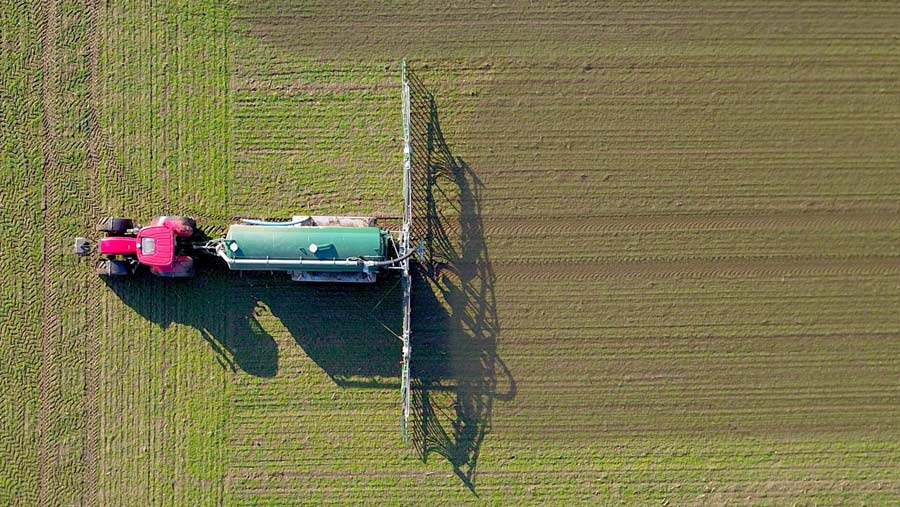MPs visit farm that uses technology to cut slurry emissions
 © Adobe Stock
© Adobe Stock A cross-party group of MPs has viewed on-farm technology capable of slashing methane and ammonia emissions from stored slurry.
The Environmental Food and Rural Affairs (Efra) committee MPs visited Holly Green Farm, near Prince’s Risborough, Bedfordshire, on 8 September as part of an ongoing food security inquiry.
See also: Dutch farmer protests derail emissions plan
The farm is run by the Dyson family who milk 500 Holsteins and adopted the technology to help meet net-zero targets and reduce odours during slurry spreading.
How is works
Supplied by Danish firm N2 Applied, the treatment unit was installed in the spring of 2021.
The equipment is housed in a converted shipping container and uses power drawn from solar panels.
Manure is put into the unit where an electrical current is applied. This creates reactive nitrogen that is then pumped back into the slurry store.
The process drops the pH and cuts the release of ammonia and methane from the slurry by 98%.
On an average 200-cow unit N2 Applied’s calculations suggested 199t of carbon dioxide a year could be locked up. Scaled up to the entire UK dairy herd, that calculation would remove 2.32m tonnes of carbon dioxide a year.
A knock-on benefit is a doubling of the available nitrogen content in the slurry, making it a more potent fertiliser, according to the firm.
It claimed two-years of trials had shown a 36% average increase in crop yields compared to untreated slurry and outputs equivalent to those achieved using artificial fertilisers.
A further improvement is the resulting material is almost odour-free which was important to the Dysons because of the farm’s close proximity to housing.
Food security
Speaking ahead of the visit, Efra chairman Sir Robert Goodwill MP said: “Given the pressures facing UK farmers and food producers we need to look at innovative solutions to help us strengthen our food security.
“Fertiliser prices are currently high. This technology – which creates a richer fertiliser while reducing the pollution associated with slurry – sounds like a step forward.
Sir Robert added: “It could help both farmers and the environment. I’m keen to learn more about developments like this and to discuss what role the government can potentially play in encouraging initiatives that can help make us more self-sufficient in the food we produce.”
